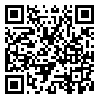Volume 1, Issue 3 (9-2022)
2022, 1(3): 9-18 |
Back to browse issues page
Deputy of Health, Zabol University of Medical Sciences, Zabol, Iran. Social Determinants of Health Research Center, Department Health Education and Promotion, School of Public Shahid, Sadoughi University of Medical Sciences, Yazd, Iran , shahrakijavad@gmail.com
Abstract: (4073 Views)
Promoting preventive behaviors among healthcare employees is of paramount importance in managing the COVID-19 disease. This study aimed to evaluate the COVID-19 preventive behaviors in healthcare workers using the Health Belief Model (HBM). In this cross-sectional study, using a randomized multi-stage sampling method, 415 healthcare workers of hospitals and healthcare centers were included in the study in 2021. Data were collected through a researcher made and structured questionnaire. The reliability and content validity of the questionnaire were confirmed. Descriptive statistics (mean, standard deviation and frequency) and analytical statistics (Pearson correlation coefficient and linear regression coefficient tests) were used for data analysis. The significance level was set at ≤ 0.05.
The majority of the participants were female (57.6%). 13% and 46.3% reported having a chronic disease. Data analysis revealed that COVID-19 preventive measures were positively associated with perceived self-efficacy, perceived benefits, perceived severity, perceived susceptibility, and cues to action. Self-efficacy and perceived benefits and cues to action were significant predictors of COVID-19 preventive measures (P≤ 0.05). The HBM proved to be a suitable framework for studying the COVID-19 preventive measures among healthcare workers. These results can be utilized in the development and implementation of health-promoting educational programs.
The majority of the participants were female (57.6%). 13% and 46.3% reported having a chronic disease. Data analysis revealed that COVID-19 preventive measures were positively associated with perceived self-efficacy, perceived benefits, perceived severity, perceived susceptibility, and cues to action. Self-efficacy and perceived benefits and cues to action were significant predictors of COVID-19 preventive measures (P≤ 0.05). The HBM proved to be a suitable framework for studying the COVID-19 preventive measures among healthcare workers. These results can be utilized in the development and implementation of health-promoting educational programs.
Type of Study: Research |
Subject:
General
Received: 2023/09/2 | Accepted: 2023/12/31 | Published: 2024/06/16
Received: 2023/09/2 | Accepted: 2023/12/31 | Published: 2024/06/16
| Rights and permissions | |
 | This work is licensed under a Creative Commons Attribution-NonCommercial 4.0 International License. |


